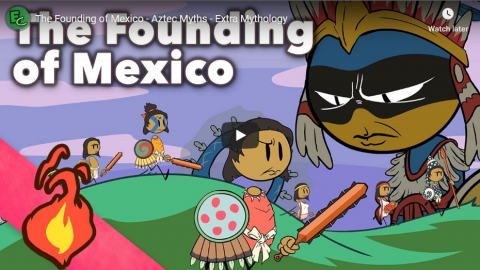At Reason, Peter Suderman can only come up with nine reasons for libertarians to be worried about Il Donalduce‘s new regime:
Here are nine reasons why libertarians should be very concerned about a Trump presidency:
1) He has repeatedly promised to deport 11 million undocumented immigrants upon taking office, relying on a “special deportation force” to carry out the task. And even in the occasional moments in which he has seemed to recognize that this task would be logistically impossible, he has continued to insist that he will deport several million people right away, and that other undocumented immigrants who are in the country will not have a path to citizenship unless they leave the country first.
2) More generally, Trump’s attitude toward immigrants and outsiders ranges from disdain to outright hostility. He has called for a ban on Muslim immigration and the closure of mosques, and he opened his primary campaign by declaring that Mexican immigrants to the U.S. were rapists and criminals.
3) Trump has also promised to build a massive, expensive wall along the southern border, and has insisted that Mexico will pay for its construction, an absurd notion that is already crumbling, as the incoming administration has asked Congress, not Mexico, to pay for the wall.
4) Trump has made clear that his administration will take a much more aggressive stance on trade as well. During the campaign, he floated the idea of a 45 percent tariff on Chinese goods, which would be deeply harmful to consumers and the U.S. economy. Since winning the election, his administration has raised the possibility of a 10 percent tariff on all imports, a policy that could spark a global recession. After winning in November, he said he would pull the nation out of the Trans-Pacific Partnership trade agreement on day one of his presidency.
On the other hand, Nick Gillespie and Veronique de Rugy are a bit more upbeat about libertarian causes in Trump’s America:
Donald Trump is nobody’s idea of a libertarian but his presidency provides a tremendous opportunity to advance libertarian policies, outcomes, and aspirations in our politics and broader culture. Those of us who believe in reducing the size, scope, and spending of the federal government and expanding the autonomy, opportunities, and ability of people to live however they choose should welcome the Trump era. That’s not because of the new president’s agenda but because he enters office as the man who will inevitably close out a failing 20th-century model of governance.
Liberal, conservative, libertarian: We all understand that whatever the merits of the great political, economic, and cultural institutions of the last 70 years — the welfare state built on unsustainable entitlement spending; a military that spends more and more and succeeds less and less; the giant corporations (ATT, IBM, General Motors) that were “beyond” market forces until they weren’t; rigid social conventions that sorted people into stultifying binaries (black and white, male and female, straight and mentally ill) — these are everywhere in ruins or retreat.
The taxi cab — a paradigmatic blending of private enterprise and state power in a system that increasingly serves no one well — is replaced by ride-sharing services that are endlessly innovative, safer, and self-regulating. Libertarian Party presidential candidate Gary Johnson’s campaign slogan — Uber everything — was the one self-evident truth uttered throughout the 2016 campaign. All aspects of our lives are being remade according to a new, inherently libertarian operating system that empowers individuals and groups to pursue whatever experiments in living they want. As one of us (Nick Gillespie) wrote with Matt Welch in The Declaration of Independents, the loosening of controls in our commercial, cultural, and personal lives has consistently enriched our world. The sharing economy, 3D printing and instantaneous global communication means businesses grow, flourish, adapt, and die in ways that perfectly fulfill Schumpeterian creative destruction. We live in a world where consuming art, music, video, text, and other forms of creative expression is its own form or production and allows us to connect in lateral rather than hierarchical ways. Pernicious racial and ethnic categories persist but they have been mostly supplanted by a tolerance and a level of lived pluralism that was unimaginable even 20 years ago, when less than [50%] of Americans approved of interracial marriages. Politics, Welch and Gillespie wrote, is a lagging indicator of where America is already heading and in many cases has already arrived.






